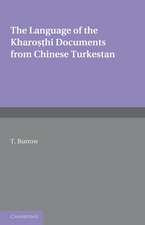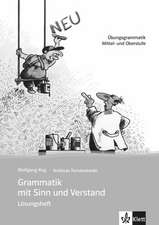Euripides
Autor Euripides Traducere de E. P. Coleridgeen Limba Engleză Paperback
Preț: 44.54 lei
Nou
Puncte Express: 67
Preț estimativ în valută:
8.52€ • 8.90$ • 7.05£
8.52€ • 8.90$ • 7.05£
Carte disponibilă
Livrare economică 14-28 martie
Preluare comenzi: 021 569.72.76
Specificații
ISBN-13: 9781453626054
ISBN-10: 1453626050
Pagini: 58
Dimensiuni: 127 x 203 x 3 mm
Greutate: 0.07 kg
Editura: CreateSpace Independent Publishing Platform
ISBN-10: 1453626050
Pagini: 58
Dimensiuni: 127 x 203 x 3 mm
Greutate: 0.07 kg
Editura: CreateSpace Independent Publishing Platform
Cuprins
PrefaceIntroductionContentsFIRST PRODUCTION OF THE PLAY - THE TRILOGY- THE TROADESTHE TEXT - The Manuscript V - The Manuscript P - Harleianus 5743 (Q) - Hazmiensis 417-Neapolitanus II F 9- Papyri-Indirect Sources - NOTES TOINTRODUCTIONTEXTApparatus CriticusList Of AbbreviationsCOMMENTARYNotes On Metrical AnalysesAddendaBibliographyBibliographical PostscriptIndexes
Descriere
Descriere de la o altă ediție sau format:
This school edition of passages from two plays of Euripides, originally published by Macmillan, is furnished with introduction, notes, vocabulary and useful summaries of the lines and choruses omitted. The "Helen" in particular is suitable for use at GCSE level.
This school edition of passages from two plays of Euripides, originally published by Macmillan, is furnished with introduction, notes, vocabulary and useful summaries of the lines and choruses omitted. The "Helen" in particular is suitable for use at GCSE level.
Recenzii
'… predictably fine, thoughtful and polished … a nicely self-contained teaching-tool … Throughout, Mastronarde displays virtues known from his previous activity as a commentator: clarity of exposition; fairness in the treatment of controversial issues; philological acumen; command of the primary and secondary literature … a keen eye for the theatrical dimension of drama; and an openness to engage with broader, and often complex, non-philological aspects of interpretation.' Mouseion, Journal of the Classical Association of Canada
'We may confidently say now that future students will face a less difficult task thanks to the work of D. J. Mastronarde, whose knowledge of Greek theatre and uncommon talent as a teacher have combined to produce a most valuable book. It is easy to foresee that students will be grateful to M. for his admirably concise and useful treatment of language, style and metre … Mastronarde's book is an outstanding contribution to the understanding of Medea and a valuable introduction to Greek tragedy as a whole. It deserves to take pride of place on the shelves of Euripidean scholars beside the time-honoured commentary of Page.' Journal of Hellenic Studies
'… this series has consistently proven itself to provide high quality commentaries for teaching Greek texts in the original. Mastronarde's fine work does not disappoint. … this is a volume which will prove very useful to students of Greek tragedy in the original and will also be a valuable resource for professional colleagues.' Hermathena
'We may confidently say now that future students will face a less difficult task thanks to the work of D. J. Mastronarde, whose knowledge of Greek theatre and uncommon talent as a teacher have combined to produce a most valuable book. It is easy to foresee that students will be grateful to M. for his admirably concise and useful treatment of language, style and metre … Mastronarde's book is an outstanding contribution to the understanding of Medea and a valuable introduction to Greek tragedy as a whole. It deserves to take pride of place on the shelves of Euripidean scholars beside the time-honoured commentary of Page.' Journal of Hellenic Studies
'… this series has consistently proven itself to provide high quality commentaries for teaching Greek texts in the original. Mastronarde's fine work does not disappoint. … this is a volume which will prove very useful to students of Greek tragedy in the original and will also be a valuable resource for professional colleagues.' Hermathena
Notă biografică
R.A.S. Seaford is Professor of Classics and Ancient History at the University of Exeter, UK. His publications include Cosmology and The Polis: the Social Construction of Space and Time in the Tragedies of Aeschylus (2012), Dionysos (2006), and Money and the Early Greek Mind (2004).
Caracteristici
The introduction covers the development of tragedy, the ancient Greek theatre, play production, the differences between ancient and modern tragedy, Euripides' life, works and reputation, and finally the Hecuba itself










